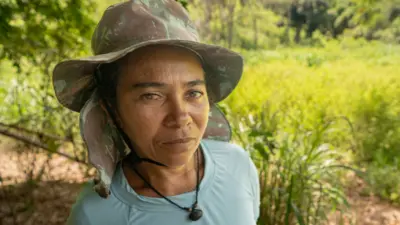We've updated our Privacy and Cookies Policy
We've made some important changes to our Privacy and Cookies Policy and we want you to know what this means for you and your data.
RSPB Bempton staff concerned over unexplained seabird deaths
Image source, RSPB
A number of unexplained seabird deaths at a colony on the East Yorkshire coast has left experts "extremely concerned".
Poppy Rummery, of RSPB Bempton, near Bridlington, said there had been a number of recent deaths, with four dead razorbills spotted on Tuesday.
Others were "acting strangely", she said. "So, whether they make it through the day, who knows?"
It comes after hundreds of birds were found dead or starving along the Northumberland and Scottish coasts.
Ms Rummery said: "We are already in a nature and climate crisis and are monitoring seabird populations here at Bempton, but we are unsure how it is going to affect them in the future."
According to the RSPB, the Bempton reserve is home to about half a million seabirds between March and October.
Image source, Mat Fascione/Geograph
The UK Centre for Ecology and Hydrology (CEH) said guillemots, razorbills and smaller numbers of puffins and kittiwakes had been affected since the first cases were reported recently, but the cause remained a mystery.
Although it has ruled out bird flu, other possible causes such as poisoning from algal blooms are being investigated.
"They are dying of starvation - it seems - and now what we are trying to find out is what's causing them to starve," CEH ecologist Dr Francis Daunt said.
"Toxins are produced by algae or plankton, and when those get to high concentrations you can get sufficient quantities of toxin produced... that can work its way up the food chain," he added.
Post-mortem examinations are being carried out on some of the dead birds, and the CEH said it would also monitor breeding colonies next spring to see if numbers were reduced.
Follow BBC Yorkshire on Facebook, Twitter and Instagram. Send your story ideas to yorkslincs.news@bbc.co.uk.
Top Stories
Features & Analysis
Most read
Content is not available







